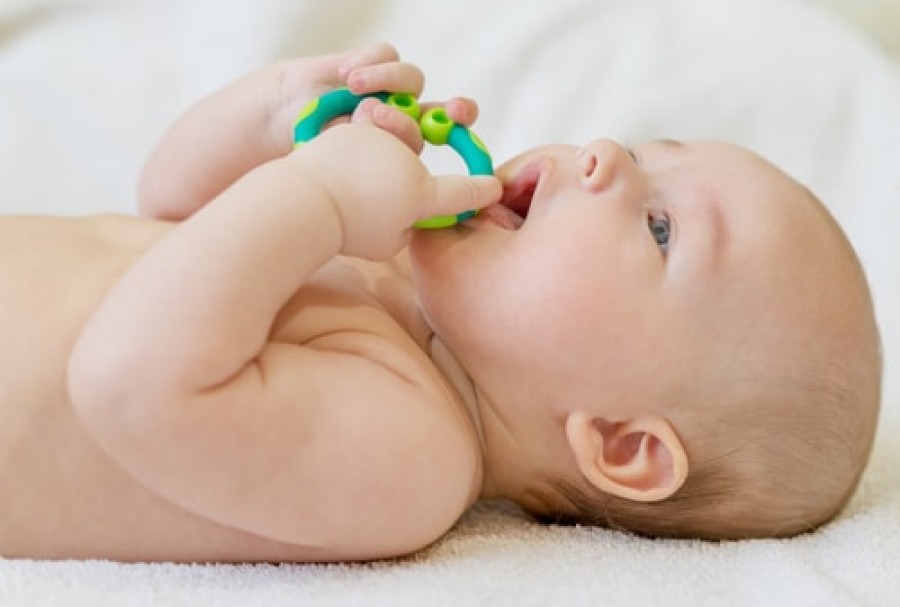Baby’s First Trip to the Dentist
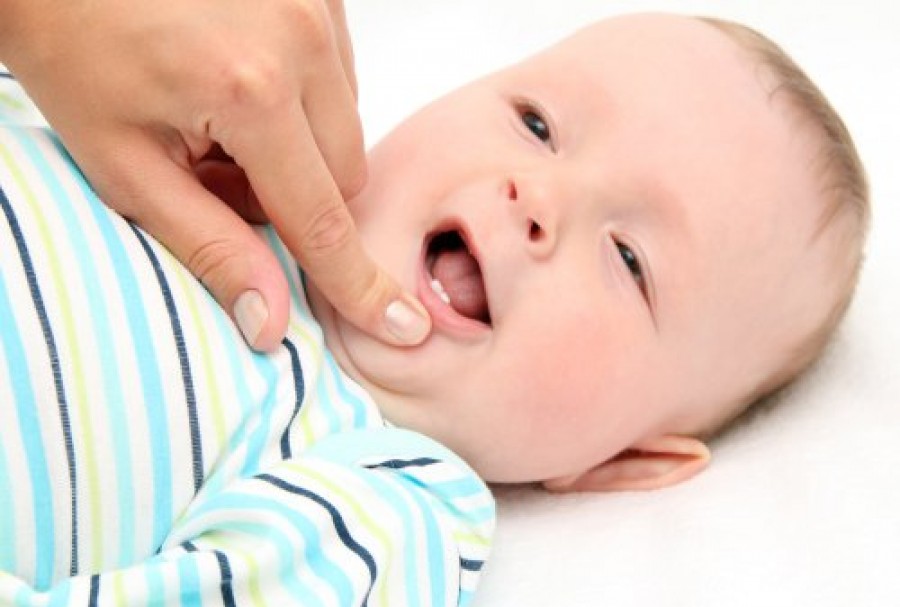
There are many aspects of health that you need to be conscious of for your little one. One thing that may not be on the forefront of your mind but that is equally important to your baby’s overall health is their oral health and hygiene. It’s vital that you start your child off with good oral hygiene habits that will follow them through life. An important part of this is taking your child to the dentist. Learn about good oral hygiene habits for your baby as well as when you should start taking them to the dentist so that you can ensure your baby the best start in all aspects of their health.
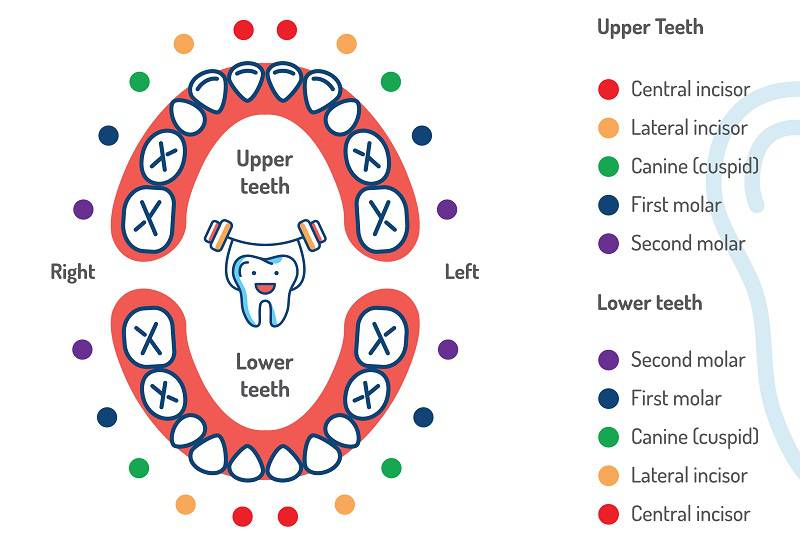
Baby’s Oral Development
Every baby is different and when your baby begins getting their teeth may be sooner or later than when other babies of the same age get their teeth. It’s normal for a baby to get their first tooth sometime between 6 and 10 months of age. Some babies may get their teeth much earlier around 3 months, while some may not get their first tooth until around 1 year of age. Overtime, your baby will eventually have 20 baby teeth. This usually occurs by the age of 3. Around 6 years of age, your child will start to have their baby teeth replaced by adult teeth which will continue to come in until early adulthood.
Upper Teeth
| Upper Teeth | Erupt | Shed |
| Central Incisor | 8-12 months | 6-7 years |
| Lateral Incisor | 9-13 months | 7-8 years |
| Canine (cuspid) | 16-22months | 10-12 years |
| First Molar | 13-19 months | 9-11 years |
| Second Molar | 25-33 months | 10-12 years |
Lower Teeth
| Lower Teeth | Erupt | Shed |
| Second molar | 23-31 months | 10-12 years |
| First molar | 14-18 months | 9-11 years |
| Canine (cuspid) | 17-23 months | 9-12 years |
| Lateral incisor | 10-16 months | 7-8 years |
| Central incisor | 6-10 months | 6-7 years |
When to Take Your Baby to Their First Dental Appointment
Some people seem to think that they can wait until their child gets all of their baby teeth in before they need to worry about taking them to the dentist. This isn’t best practice, however. Ideally, you should take your baby to the dentist when their very first tooth erupts or shortly after their first birthday – whichever comes first. Taking your baby to the dentist sooner rather than later will help to ensure that you know the best ways to care for your child’s teeth and will help prevent possible problems in the future.
Preparing Your Baby for Their First Dental Appointment
Your baby’s first dental appointment can be a little intimidating and scary – not just for your baby, but for you as well. It’s important to not let your little one think that you’re worried or that there is any reason to be scared. There are some tips that will help make your baby’s first dental visit go as smoothly as possible.
#1 Start Oral Hygiene Early
Even before your baby’s first tooth becomes visible, you can start getting your child used to having their mouth messed with so that brushing their teeth and dental visits will be easier. When your baby is only a couple months old, you can begin wiping their gums down with a damp washcloth.
#2 Begin Brushing Baby’s Teeth as Soon as the First Tooth Erupts
As soon as your baby’s very first tooth becomes visible, stop using the wash cloth and begin actually brushing your baby’s teeth. Use a soft baby tooth brush and just water.Around a year and a half of age, you can begin using a toothpaste with fluoride in it when you brush your child’s teeth. With a gentle circular motion, go over all surfaces of your baby’s teeth.
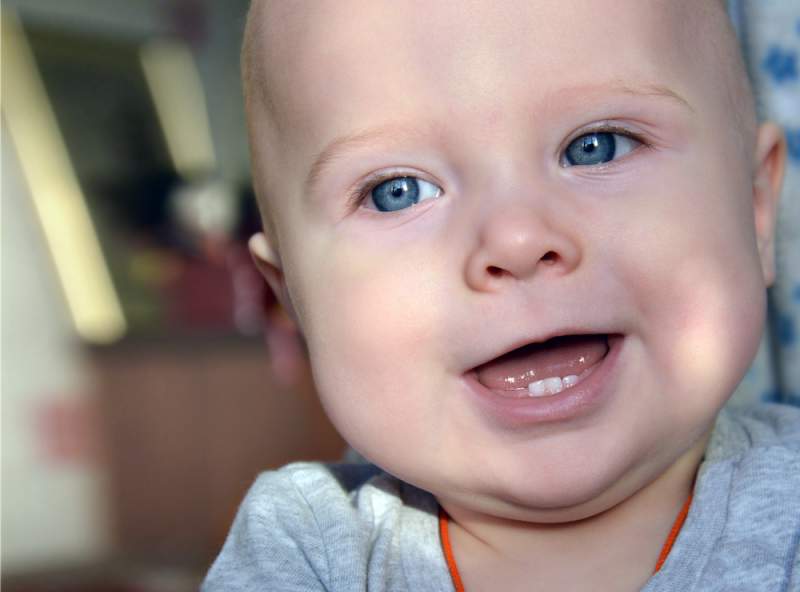
#3 Limit Sugary Foods in Your Child’s Diet
Foods with added sugar should be limited in your child’s diet. Not only are they bad for your child’s overall health but they also greatly increase the chance of tooth decay. Try to only give your child these types of food as treats and don’t include them as a regular part of your child’s diet. Your baby does not need fruit juices or sugary drinks either. Water is a wonderful drink to give your little one rather than juices.
#4 Talk to Your Child About the Dentist
Don’t make your child’s first trip to the dentist a surprise. Talk to them about it far in advance. Try to make it sound exciting and like it’s something to look forward to. Your child’s preconceived notions about the dentist will have a lot to do with how their experience goes.
#5 Don’t Use Scary Terms or Threats When Talking About the Dentist
Be mindful of the way you phrase things when you’re talking about the dentist. Make things sound fun rather than scary by talking about how your child gets to go for a fun ride on the dentist’s chair, and how the dentist is a friend of the tooth fairy. Try to avoid talking about things like shots or drills when talking to your child about the dentist. You should also never threaten your child with the dentist. For example, if you’re having trouble with your child letting you brush their teeth, don’t tell them that if they don’t let you that the dentist will pull their teeth out. These types of things can make your child fearful of their visit with the dentist.
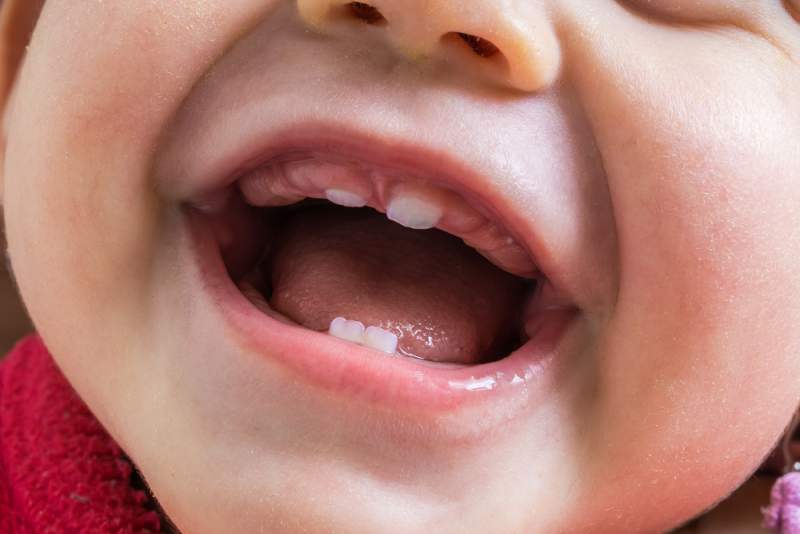
What to Expect at Your Child’s First Dental Appointment
You’re probably a little nervous about taking your child to the dentist for the first time. You may be unsure of what to expect and you don’t know how your child is going to react. It’s normal to feel this way. Learning what you can expect from your child’s first dental appointment can be helpful in calming your nerves.
#1 Oral Exam of Your Child
During your child’s first visit to the dentist, the dentist will examine your child’s mouth. They will look at your child’s gums and other soft tissue in the mouth as well as their teeth. It’s likely that you will be able to hold your child during this exam to help your child remain calm and comfortable. The dentist may clean your child’s teeth and show you how to do so at home as well. Keep in mind that your child may be fussy or throw a fit. Don’t be embarrassed or worried if that’s the case. The dentist and his or her staff are used to working with babies and small children. They will be understanding and will do their best to keep your child calm and happy.
#2 Discussion About Medical History
Just like with your child’s doctor, your child’s dentist will want to take down a complete medical history for your child. You’ll also need to fill out paperwork. Ask about filling your paperwork out ahead of time to possibly make the dental appointment go a little quicker and smoother.
#3 Other Things the Dentist May Discuss with You
In addition to your child’s medical history, there are some other things that your child’s dentist will likely want to discuss with you. They’ll probably talk to you about what to expect regarding your child’s upcoming oral development, as well as proper oral hygiene techniques for your child. They may also talk to you about the following:
- Your child’s teething
- Any oral-related habits such as thumb-sucking or the use of a dummy
- How to protect your child’s mouth from injury
- How often to return for future visits
- The way your child’s teeth come together, also known as their bite.
- Healthy eating habits for your child
- How to prevent tooth decay in your child
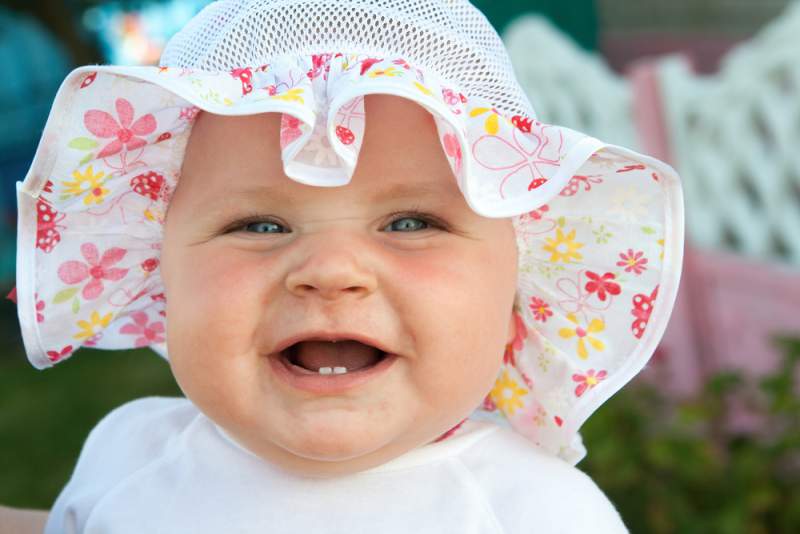
Continuing Good Oral Hygiene
It’s important to remain vigilant when it comes to your child’s oral health. Start good habits from the very beginning before your child ever even gets their first tooth and continue them consistently throughout your little one’s childhood. This will encourage them to make life-long good oral hygiene habits. You’ll need to continue assisting your child with brushing their teeth properly until at least age 7 or so. From then, continue to check on how they are doing with it to make sure they don’t start to slip up. They may be a little annoyed sometimes, but they will definitely thank you one day.


